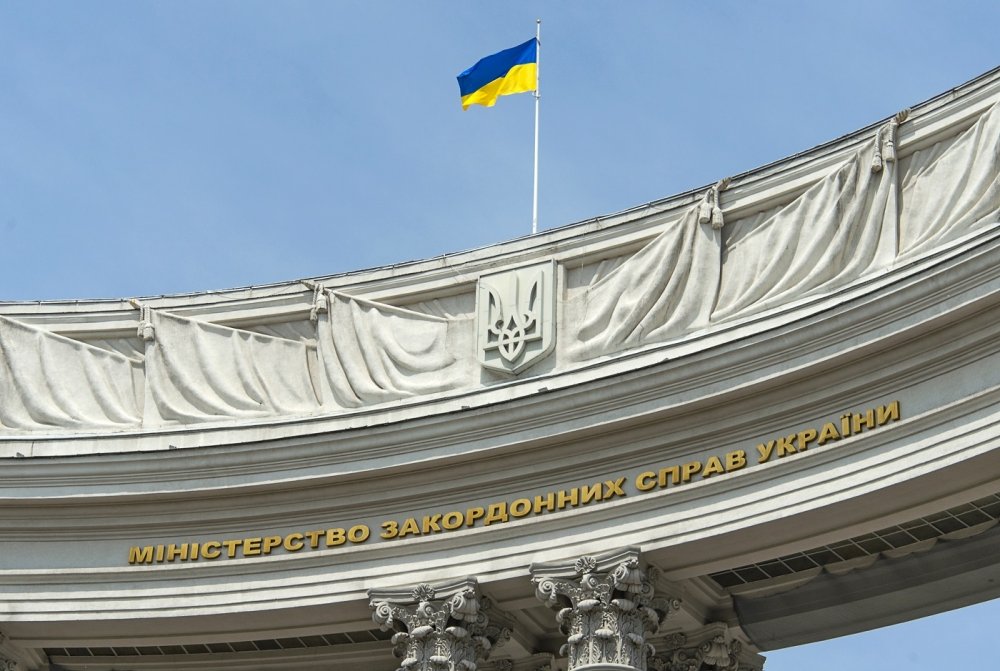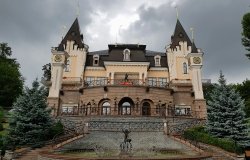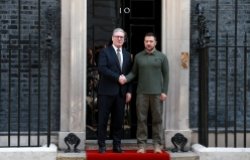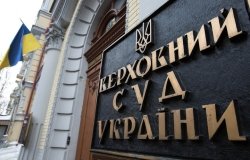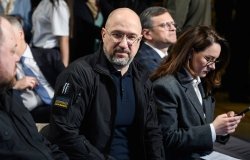
A blog of the Kennan Institute
The Implication of Russia’s Invasion for Ukraine’s Foreign Policy
Russia’s full-scale invasion of Ukraine in February 2022 has had a profound impact on the design and conduct of Ukraine’s foreign policy. Not only has it changed the principles and worldviews on which Ukrainian foreign policy had always been built, it has also led to an overhaul of the mechanisms and instruments formerly used to promote the old political agenda.
Ukraine’s Post-Soviet Foreign Policy
For years, Ukraine’s foreign policy has bifurcated between the West and Russia, essentially remaining bipolar in a post-bipolar world order. In the 1990s and early 2000s, successive Ukrainian governments and elite financial groups didn’t believe a total war with Russia was possible and were focused on acquiring wealth and legitimacy through avenues available in the then existing international economic environment: attending to the huge post-Soviet markets, flirting frivolously with the ideas of Euro-Atlantic or Eurasian integration, engaging in various enrichment schemes for their personal commercial and political gain.
But at least since the mid-2000s the situation has quietly evolved, while the Ukrainian elites have failed to grasp the moment and adequately assess its magnitude.
The world financial crisis of 2008 dealt a heavy blow to Ukraine’s finances, while the rise of China and other regional economies has weakened domestic producers. As the U.S.-Russian rivalry intensified, the stable geopolitical balance on which the post–Cold War international order was based gradually began to erode.
After the 2003 invasion of Iraq, the United States lost its status as the only superpower in the post–Cold War world, while Europe moved to a closer strategic energy partnership with Russia as the first step toward building an alternative Eurasian security architecture.
The flow of petrodollars into Russian coffers in the 2000s allowed the Kremlin to accumulate enough resources to try to restore its hegemony in the post-Soviet region and launch a full-fledged expansion in the Ukrainian markets in 2006, which reached a peak during the presidency of Russia ally Viktor Yanukovych in 2010–2014.
During these periods Ukraine’s foreign policy was inadequate to the emerging realities. Short-sighted, rigid, archaic, and highly personalized, it was often shaped by domestic political grievances, personal electoral agendas, and narrow business interests, while suffering from institutional powerlessness and analytical weakness.
As a result, Ukraine failed to adapt to the new balance of power and identify key challenges and opportunities that could show the right way forward. Ukraine’s trade and economic policies were largely based on the assumption that the post-1991 growth would continue indefinitely and that no major crisis could challenge the existing status quo in world and regional politics.
Russia’s economic and financial expansionism in Ukraine in 2005–2010 didn’t prompt any protective reaction from the Ukrainian political elites but rather was perceived as lucrative business as usual with a well-known and close neighbor, allowing key politicians to prosper from these deals and gain domestic political weight. The constant talk about Euro-Atlantic integration was not sincere, serving instead a political purpose. That purpose was twofold: appeasing constituencies before elections and flirting with the West to counterbalance Russia (and vice versa).
Since 2008, then, Ukraine has started to lose competition and its traditional markets, in the first instance because Kyiv failed to identify shifts in global economic and trade relations, and then following Russia’s invasion of 2014.
The End of the Old Foreign Policy
Russia’s full-scale invasion of Ukraine in 2022 was the final nail in the coffin of Ukraine’s post-Soviet foreign policy. Although not fully realized on the political level, this war has had a profound impact on Ukraine’s international agenda and self-identification on the world stage. In February 2022 Ukraine found itself alone against an invading Russia, without effective, robust security partnerships or guarantees. This was a direct result of the passive and short-sighted foreign policy, which hadn’t managed to identify the risks and prepare a relevant infrastructure as a contingency.
Even today, Ukraine’s role in world affairs has for the time being weakened and narrowed to fighting for survival against a ruthless and brutal enemy. At the same time, this war has led to a clearer understanding of Ukraine’s strategic security goals and helped the Ukrainian leadership realize that foreign policy should not be confined to several countries but should also cover regions Ukraine has never taken seriously.
Objectives Shaping a Future Foreign Policy
According to a recent report by the Ukrainian Institute for the Future, as a result of this war, Ukraine’s foreign policy will be likely shaped by two strategic objectives: deterring Russia and a regional balancing of power.
Ukraine will have to deal with the Russian threat in the long term. The liberation of all occupied territories is unlikely to end the feud between Ukraine and Russia. Nor is the feud likely to end with Putin’s exit from the Kremlin. Therefore, Ukraine will need to come up with a sophisticated, multilayered plan for the strategic deterrence of Russia for years to come.
Devising and implementing such a plan of deterrence will in turn require close cooperation with both Western partners and non-Western countries, both vital to ensure the deterrence is as efficient as possible. This will require a drastic shift from Ukraine’s traditional foreign policy thinking and its limitations. Ukraine will need to work with previously largely unknown regions, such as Africa, Latin America, the Middle East, and South and Southeast Asia, where Kyiv has always had a modest diplomatic presence and weak political ties.
Recent meetings in Copenhagen and Jeddah between Ukrainian officials and dozens of national security advisers from India, Brazil, the UAE, Saudi Arabia, South Africa, and other non-Western countries underscored how difficult it is to communicate and advocate for Ukrainian interests without properly established political contacts. However, Ukraine has no other option but to further expand its outreach with a more open-minded and pluralistic worldview to make deterring Russia a realistic goal.
A New Regional Balance of Power
Another strategic goal shaping Ukraine’s foreign policy in the future is expected to be establishing itself as a key country in stabilizing the new regional status quo after the war. It is clear now that Russia, no matter the outcome of this war, has been weakened. Its presence in the region is diminished, and many post-Soviet republics already opting for a diversified foreign policy, free from Moscow’s diktat, are allowing outside players to enter the post-Soviet political field in Eastern Europe, the South Caucasus, and Central Asia. Most likely the shift in regional relations will spark competition among traditional foreign powers, such as the United States, the UK, France, Germany, and Russia, and the emerging players, both regional and outside ones: China, Japan, South Korea, Saudi Arabia, Turkey, the UAE, Poland, Kazakhstan, Uzbekistan.
Ukraine will have an opportunity to make its own contribution, too, as a country heavily invested in keeping Russia at bay and enhancing its own regional clout. A strong, stable, and powerful postwar Ukraine could play a key role as the primary stabilizer of the new post-Russia status quo, able to effectively balance different countries in a constructive way, including Turkey, Germany, France, Poland, China, and Russia. This would be expected to give the region the necessary stability to remain democratic, coherent, and calm.
The State Must Prepare Its Own Future
These two strategic tasks are new considerations in Ukraine's foreign policy and will require a serious reorganization of state structures, a rethinking of institutional capacities, and a new approach to training and education policies. They will also require the political elites to regularly monitor world events, treat political analysis more seriously, and pay more attention to medium- and long-term challenges, interests, and goals, all areas of deficit for the Ukrainian government. Nevertheless, Ukraine can’t afford to repeat past mistakes and ignore the international context while outsourcing security and foreign policy issues to partners, hoping for a better future one day.
The opinions expressed in this article are those solely of the author and do not reflect the views of the Kennan Institute.
See our newest content first.
Subscribe to receive the latest analysis from Focus Ukraine.
About the Author



